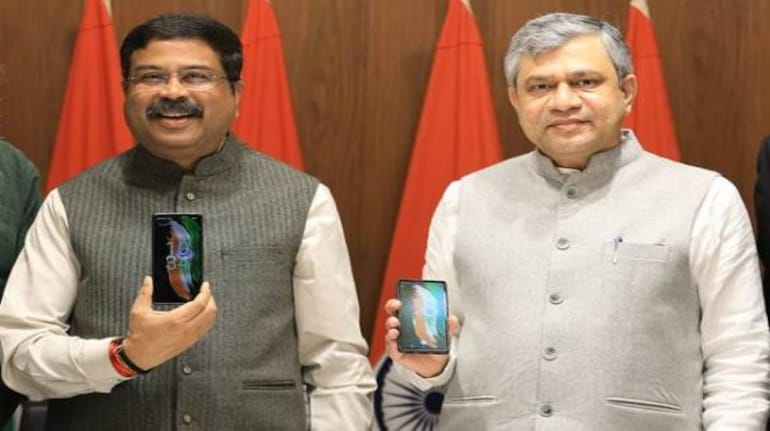



BharOS, the homegrown operating system that was successfully tested by Union ministers Ashwini Vaishnaw and Dharmendra Pradhan on January 24, is based on a Linux kernel, Indian Institute of Technology (IIT) Madras director V Kamakoti told Moneycontrol.
The Linux kernel is the main component of the open-source Linux operating system developed by Finnish software engineer Linus Tovalds. Android, too, is a derivative of the Linux kernel, Kamakoti said.
This is important because BharOS is being promoted by the Indian government as an indigenous mobile operating system. On January 24, a Press Information Bureau release described BharOS as a "Made in India operating system", which was an important step towards fulfilling the PM's vision of "strong, indigenous and self-reliant digital infrastructure in India".
Speaking over phone, Kamakoti said, "Any Android operating system is a fork of original Linux distribution. We have used some early versions of Linux -- it's basically a derivative of the Linux kernel. However, a lot of customisation including security protocols, such as root of trust and chain of trust modifications have been done to create BharOS."
This indicates that the core of the BharOS operating system may share similarities with the Android operating system, but the difference in the former lies in how it has been developed on top.
For instance, the operating system comes with No Default Apps (NDA). This means that users are not forced to use apps that they may not be familiar with or that they may not trust, a statement from IIT Madras said. This is unlike Android phones where users are forced to choose from Google products such as Google Maps, Chrome and so on.
For the testing of the operating system on January 24, one BharOS-enabled phone was given to IT Minister Ashwini Vaishnaw and Education Minister Dharmendra Pradhan. The other BharOS-enabled phone was sent from IIT Madras to IIT Tirupathi director KN Satyanarayana.
The trio connected over video call where Tirupathy told Vaishnaw that the system was running smoothly and the video quality for the call was good. In response, Vaishnaw said that the government will work on the app ecosystem and on Made-in-India chipsets.
After the test, Vaishnaw said, "The challenge begins today. I don't want to get tired. There will be lots of difficulties; and there are many people around the world who do not want a system like this to succeed. So we have to be very careful, cautious and persistent and we have to continue working on making it successful."
Kamakoti said that WhatsApp and an Indian navigation and map app called Mappls (MapmyIndia) were running smoothly on phones running the BharOS operating system.
On January 19, when the operating system was launched, an IIT Madras statement said that its services were being provided to organisations that have stringent privacy and security requirements; whose users handle sensitive information that requires confidential communications on restricted apps on mobiles.
The BharOS was developed by JandK Operations Private Limited (JandKops), which has been incubated by IIT Madras Pravartak Technologies Foundation, a Section 8 (Not for Profit) Company established by IIT Madras. The Foundation is funded by the Department of Science and Technology (DST), Government of India, under its National Mission on Interdisciplinary Cyber-Physical Systems (NMICPS).
Discover the latest Business News, Sensex, and Nifty updates. Obtain Personal Finance insights, tax queries, and expert opinions on Moneycontrol or download the Moneycontrol App to stay updated!
Find the best of Al News in one place, specially curated for you every weekend.
Stay on top of the latest tech trends and biggest startup news.